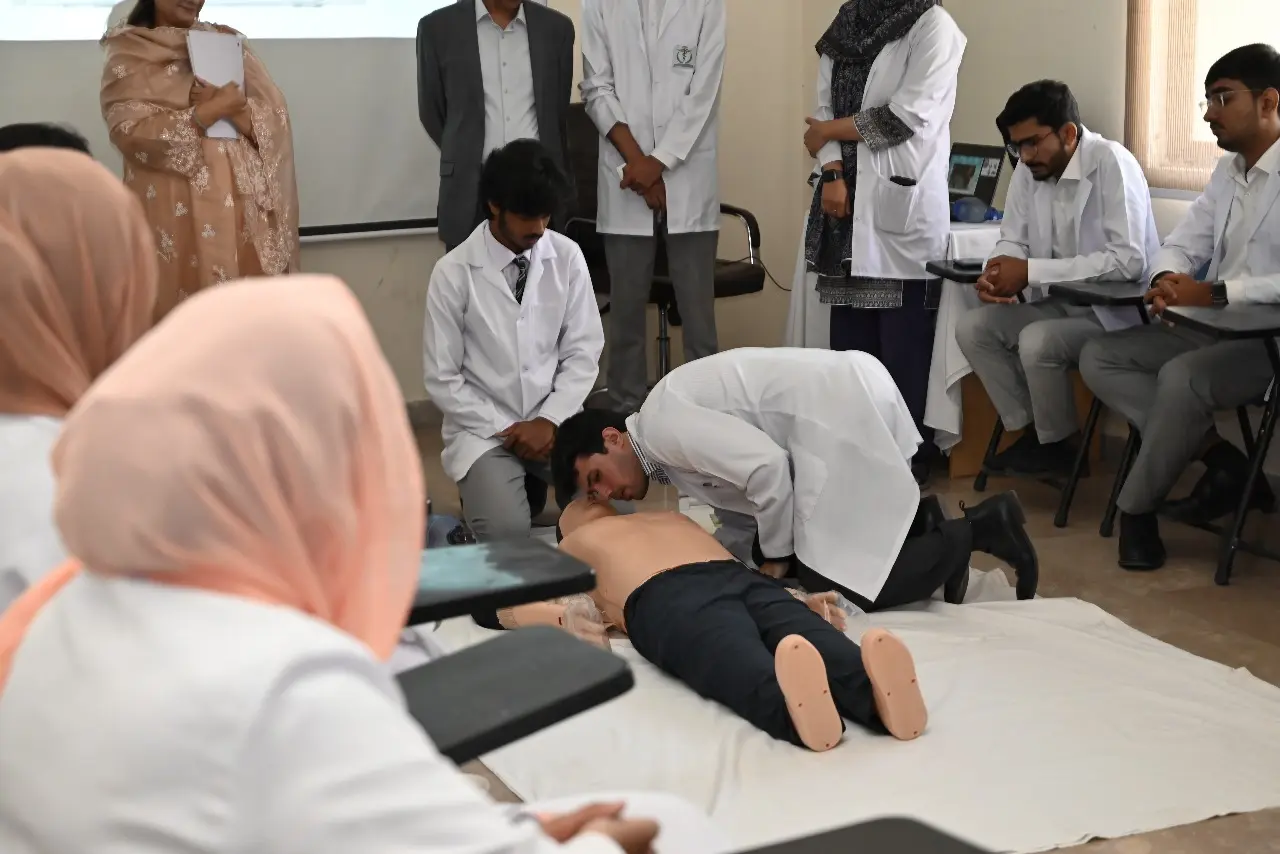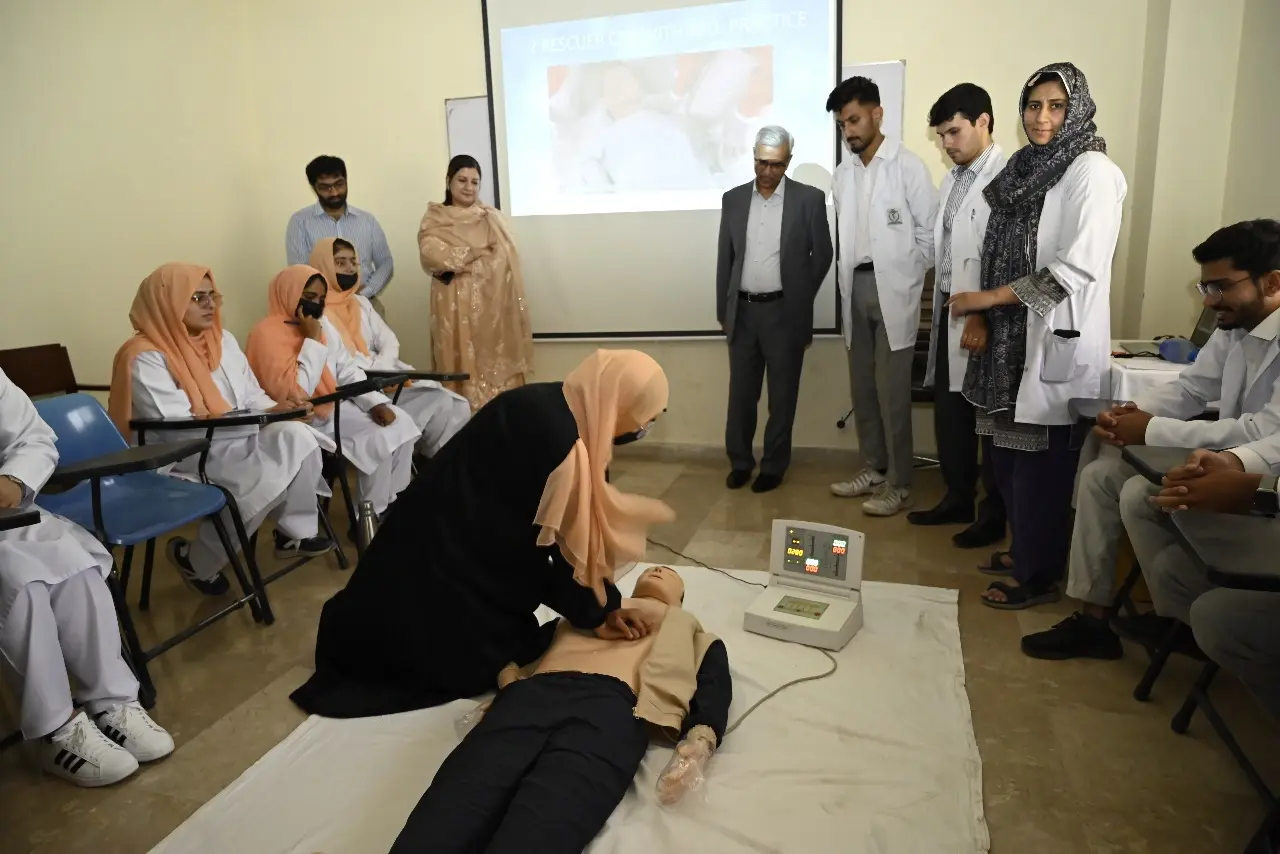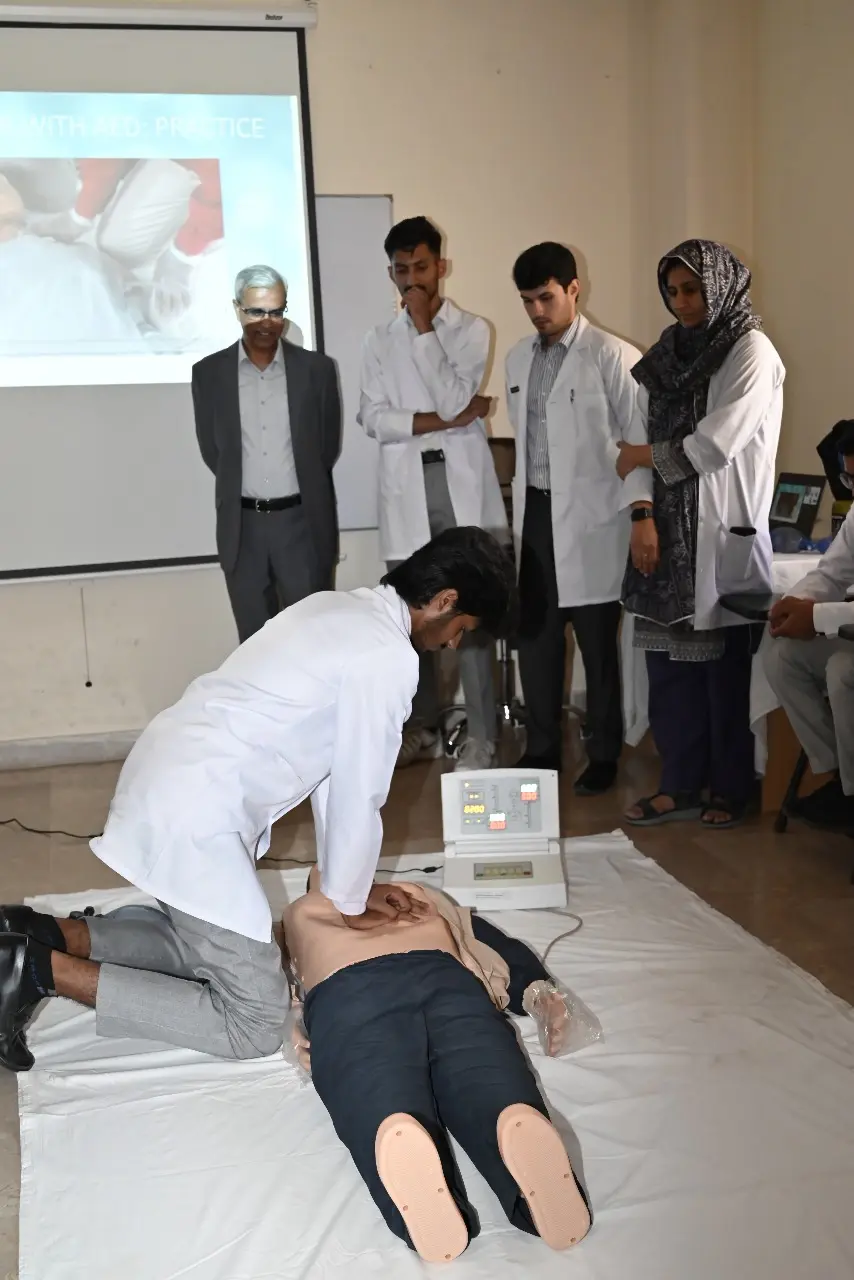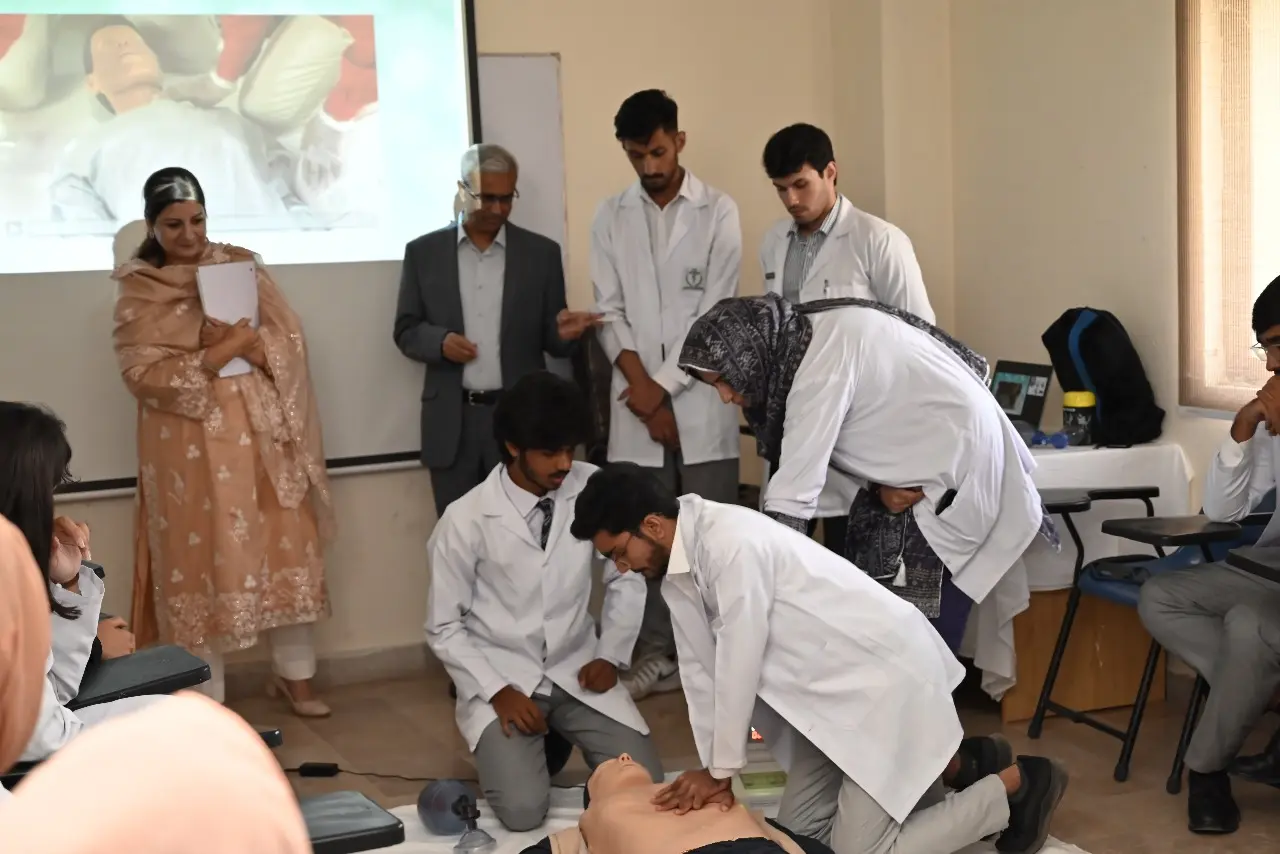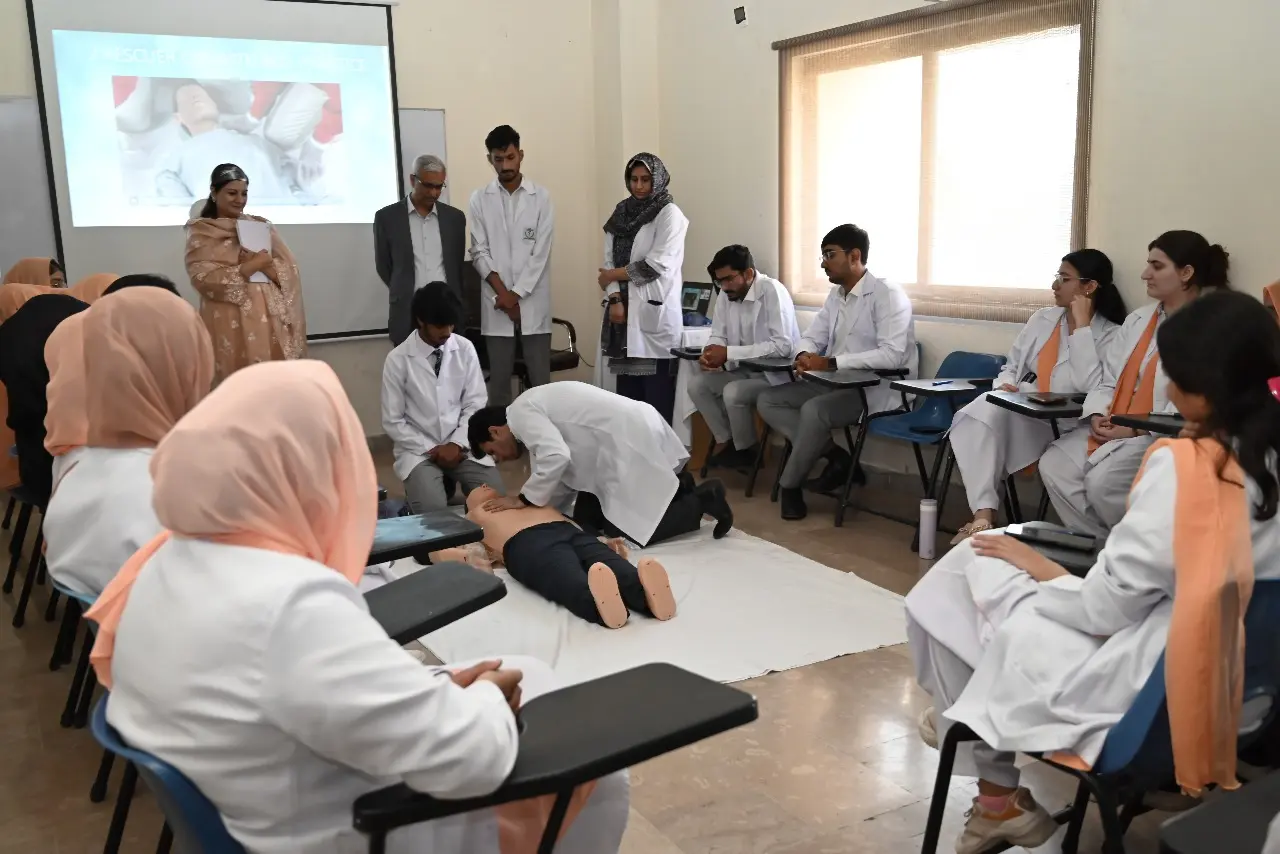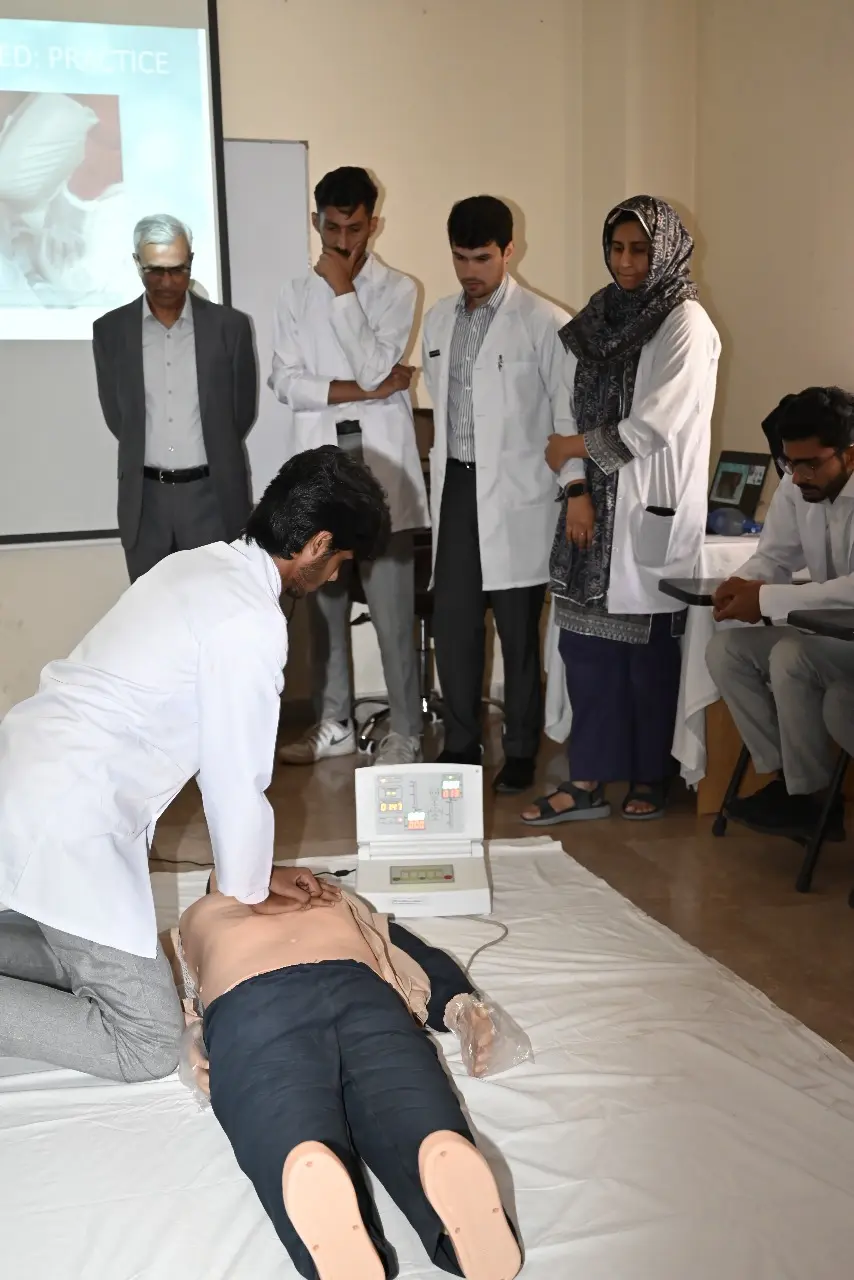The Department of Physiology in collaboration with Departments of Emergency Medicine and Cardiology at HITEC-IMS successfully organized a Basic Life Support (BLS) training workshop for first-year MBBS students with the aim of equipping them with lifesaving skills based on the latest American Heart Association (AHA) Guidelines 2020–2024. Over the course of three days, a total of 150 students were trained in structured three-hour sessions. The sessions were conducted under the mentorship of Dr. Ayesha Saeed (FCPS Emergency Medicine), Dr. Usman (FCPS Cardiology), and Dr. Kashif Dar (MD), all certified in BLS and ACLS, and were supported by facilitators Dr. Taha Abid and Dr. Sharjeel Sadiq.
The workshop began with an introduction to the importance of BLS and the Chain of Survival, followed by demonstrations of high-quality CPR, airway management, and the correct and safe use of an automated external defibrillator (AED). Students were then divided into small groups for hands-on practice at skill stations, where they were closely supervised to ensure correct technique and immediate corrective feedback. Each session also included integrated simulation scenarios in which students worked in teams to manage mock cardiac arrest situations, thereby practicing both technical skills and teamwork with closed-loop communication.
The structure of the training ensured a balanced approach, with 20% time allocated to lectures, 20% to demonstrations, 50% to hands-on practice, and 10% to simulations with debriefing. Student performance was assessed continuously during practice and simulations, with particular emphasis on the quality of chest compressions, effective ventilation, AED use, and teamwork. Feedback from participants highlighted a significant improvement in confidence, preparedness, and willingness to initiate BLS in real-life situations.
This event marked the first formal BLS training program for the new MBBS batch at HITEC-IMS. Students greatly appreciated the interactive, practice-based format, while faculty emphasized the importance of continuous practice in order to maintain competency.
EVENT INFO :
- Start Date:September 15, 2025
- Start Time:9:30am
- End Date:September 17, 2025
- End Time:12:00pm

